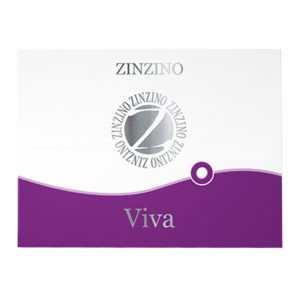Saffron – the mighty helper for many symptoms
When people talk about menopause, the stars of the conversation are usually the annoying hot flashes and the pesky sweats. Not many people know much about the “dark” side of the menopause – the mental and emotional challenges of the hormonal storm that hits women around the middle age.
Some of the emotional changes experienced by women undergoing perimenopause and menopause can include:
- irritability
- feelings of sadness and uselessness
- anxiety
- mood changes
Although depression is not necessarily considered a menopause symptom by the medical world, many women exhibit symptoms of mild to moderate depression and are recommended the use of antidepressants in order to go through this rough times.
Some of the most commonly prescribed medication for menopause depression this are called reuptake inhibitors.
Different kinds of reuptake inhibitors target different neurotransmitters:
- elective serotonin reuptake inhibitors SSRIs – are some of the most commonly prescribed antidepressants available. They include Lexapro, Prozac and Zoloft
- serotonin and norepinephrine reuptake inhibitors SNRI – are among the newer types of antidepressants and they work by blocking the the reuptake of both serotonin and norepinephrine. Some of the most prescribed SNRIs are duloxetine and venlafaxine
- norepinephrine and dopamine reuptake inhibitors NDRIs – are another class of antidepressants represented solely by bupropion, product sold as Wellbutrin.
Like most antidepressants, the above mentioned work by ultimately affecting changes in the chemistry of the brain and communication between brain nerve cells which help relieve depression. The improvement in mood and lastly, life quality, comes at the price of some side effects. Often times it takes long until start feeling their effects and other times different antidepressants need to be tried out until the one is found that works on the individual.
Some of the most common side effects of antidepressants intake are:
- physical symptoms as headaches, joint pain, muscle aches, nausea, skin rashes and diarrhea or constipation, tiredness, dry mouth, excess sweating
- sleep disturbances- trouble falling asleep as well as staying asleep, nightmares and even sleepwalking
- migraine headaches caused by serotonin syndrome ( too much serotonin in the brain)
- weight gain – the most common side effect of antidepressants and the number one reason why patients ( especially females ) stop taking it
- changes in sexual function, such as reduced sexual desire as well as difficulty reaching orgasm. (WebMD)
What is the alternative to antidepressants you may ask?
When you are depressed, you need relief fast. Making changes in the lifestyle and smart lifestyle choices are a great way to ease depression but need motivation and motivation is something that depressed persons usually lack.
Taking the right natural supplement can jumpstart your way into a healthy lifestyle and back into feeling your very best self.
There are many natural supplements with antidepressant effect but today I want to introduce you to a mighty and less known one – SAFFRON.
WHAT IS SAFFRON?
A spice derived from the flower of Crocus sativus, saffron is mainly used as a seasoning and coloring agent in food. Apart from its uses, saffron is known as being one of the most valuable and expensive spices worldwide, thanks to its medicinal properties and the list of them is long and impressive. The plant is cultivated mainly in Iran, Afghanistan, Turkey and Spain, its mainly active constituents being the high content of carotenoids as well as crocin (also responsible for the saffron yellow color).
Saffron benefits
1. TREATS ANXIETY AND DEPRESSION
One of the most studied effects of saffron on the human body is its amazing power to reduce anxiety and depression. As a therapeutic remedy, saffron was used for depression in Persian traditional medicine 3500 years ago and it is one of the top 14 herbs mentioned in the Bible.
Due to safety concerns as well as side effects of many antidepressant medications, researchers started trial studies to assess the efficacy of this herb in treating mild to moderate depression and the results were impressive.
“Findings from clinical trials conducted to date indicate than saffron supplementation can improve symptoms of depression in adults with MDD (Major Depression Disorder).”
“In the systematic review, six studies were identified. In the placebo‐comparison trials, saffron had large treatment effects and, when compared with antidepressant medications, had similar antidepressant efficacy. Saffron’s antidepressant effects potentially are due to its serotonergic, antioxidant, anti‐inflammatory, neuro‐endocrine and neuroprotective effects.”
“The result of this study indicate the efficacy of Crocus sattivus in the treatment of mild to moderate depression. On the other hand, a tolerable side effects profile of saffron, may well confirm the application of saffron as an alternative treatment for depression”
Efficacy: saffron vs fluoxetine – “The scores of the two groups of patients show that there were no significant differences between the group taking fluoxetine and the one taking saffron”
“One double-blind, randomized, controlled trial compared the effects of saffron with fluoxetine (generic form of Prozac) in 40 people with major depression. For eight weeks, half the participants took a supplement containing petal of Crocus sativus (15 mg morning and evening) and the other half took fluoxetine (10 mg morning and evening). Depression symptoms and severity were rated using the Hamilton Rating Scale for Depression.
At the end of the study, both the saffron and fluoxetine treatments resulted in significant improvements in depression symptoms and severity, with no difference in the amount of improvement between the two groups. At least two previous studies also found that both the stigmas and petals of saffron (30 mg per day) act as natural antidepressants with effectiveness equal to generic Prozac.”
Taking specific saffron extracts like VIVA from Zinzino by mouth helps improve symptoms of major depression after a few weeks of treatment.
Besides its amazing benefits in easing depression, saffron’s constituents have shown many other great health benefits.
2. TREATS INSOMNIA
Insomnia is a very common sleep disorder especially during the course of menopause, when a woman’s ovaries gradually decrease production of estrogen and progesterone, a sleep promoting hormone. This shift of hormones, paired with episodes of night sweats, can be an unsettling process, many times contributing to the inability to fall or stay asleep. Multiple medicinal herbs are commonly used for insomnia, with saffron being a powerful one.
“The generally used saffron, which is the stigma of Crocus sativus L, has demonstrated various effects upon the nervous system”
Researches at zinzino.com have shown that if you find it hard to get sleep at night, you wake up too early or still tired in the morning, you should use saffron mostly at night time (see questionnaire below).
3. IMPROVES PREMENSTRUAL SYNDROME
About 80% of menstruating women suffer from at least one premenstrual symptom during their monthly cycle. Research has found that saffron can significantly reduce the symptoms of PMS, especially those that impact pain but also mood. Responsible for this positive effect is the ability of saffron to influence the neurotransmitter serotonin.
4. BOOSTS ENERGY LEVELS
The active chemicals in saffron belong to a group of molecules called carotenoids. These molecules improve our energy supply and power. This is likely due to improved mitochondrial function in the cells as well as improved blood flow and oxygen delivery to muscles and brain.
5. BENEFICIAL FOR ALZHEIMER’S
Saffron extract supplementation for 16 weeks improved cognitive function and reduced dementia in a study of 46 patients with dementia.
Crocin, the active ingredient in saffron, can increase the cognitive ability and memory.
In 54 patients with Alzheimer’s, treatment with saffron extract twice daily for 22 weeks was found to be as effective as donepezil used for Alzheimer’s treatment.
6. PROMOTES WEIGHT LOSS
Saffron may aid in weight loss by curbing the appetite by:
- reducing absorption of fat
- reducing caloric intake by lowering appetite
- improving use of glucose and fat for energy
- high doses (176,5mg twice daily) of saffron for 6 months slightly reduced late night snacking in a group of 60 overweight women.
- improving digestion and providing relief from acidity and gas
7. ANTI-INFLAMMATORY PROPERTIES
Supplementation with saffron reduces the levels of inflammation in the body by inhibiting the production of inflammatory molecules.
8. POTENT PAINKILLER
Saffron extract can be used for treating many severe painful conditions like stomach pain, menstrual and kidney pain, toothaches, headaches.
9. POTENT APHRODISIAC
Saffron has been used for many centuries as a potent aphrodisiac in many Arab countries. Its effect on libido is due to its capacity to increase the flow of blood in the pelvic region.
10. IMPROVES HEART HEALTH
Saffron can reduce cholesterol levels, which decreases the risk of heart disease, obesity, and diabetes.
In rats, the active chemical crocin significantly lowered fat levels in the blood. It also increased the amount of fat excreted from the body, which may prove beneficial for weight loss.
Click underlined words to read the studies.
What’s the right dosing?
The typical dose used in successful studies of saffron versus Alzheimer’s, versus PMS, and versus depression was 30mg/day.
Side effects and caution
Taking large amounts of saffron (more than the prescribed 30mg/day) per mouths is possibly unsafe. Taking saffron by mouth during pregnancy and breast feeding (amounts larger than what is normally found in food) is likely unsafe. Saffron seems to be able to affect mood. It can trigger excitability and impulsive behavior in people with bipolar disorder. Saffron might lower blood pressure. Taking saffron might make blood pressure become too low in people with low blood pressure.Source: WebMD
This article is sponsored by an independent distributor of Zinzino products. You can order Viva (saffron) by following the link below.
I encourage you to provide feedback on this product in order to benefit women who are experiencing the same symptoms as you.
written by



